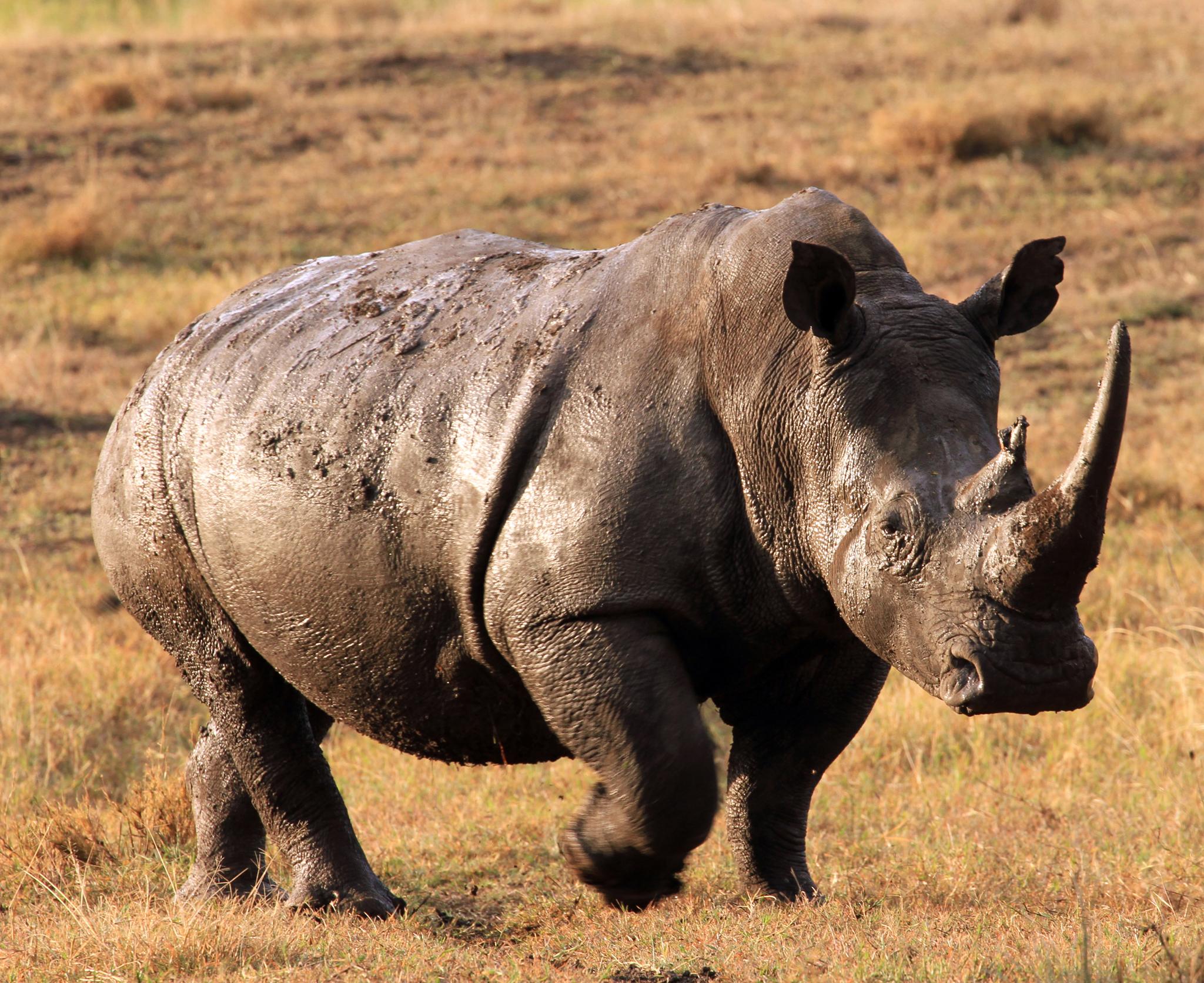Rhino charges and injures suspected poacher tracking him in Namibia national park
Luteni Muharukua left with severe leg wound after falling when fleeing animal he is presumed to have been hunting for its horn

Your support helps us to tell the story
From reproductive rights to climate change to Big Tech, The Independent is on the ground when the story is developing. Whether it's investigating the financials of Elon Musk's pro-Trump PAC or producing our latest documentary, 'The A Word', which shines a light on the American women fighting for reproductive rights, we know how important it is to parse out the facts from the messaging.
At such a critical moment in US history, we need reporters on the ground. Your donation allows us to keep sending journalists to speak to both sides of the story.
The Independent is trusted by Americans across the entire political spectrum. And unlike many other quality news outlets, we choose not to lock Americans out of our reporting and analysis with paywalls. We believe quality journalism should be available to everyone, paid for by those who can afford it.
Your support makes all the difference.A rhino turned the tables on a suspected poacher in Namibia, charging and injuring the man while he was allegedly tracking it.
The incident happened in Etosha National Park after suspect Luteni Muharukua and other alleged poachers illegally entered the wildlife area in hopes of killing rhinos for their horns, The Namibian newspaper reported last week.
The newspaper said the rhino “appeared from nowhere” and quoted Simson Shilongo, a police officer, as saying the rhino inflicted a severe leg injury on Muharukua after he fell while fleeing.
The suspect's friends found refuge for him on a nearby mountain and police arrested him there on 15 October, a day after he was injured, according to Shilongo. Muharukua was being treated at a hospital under police guard.
The Namibian posted an online cartoon showing a snarling rhino butting a man with a rifle who is already airborne from the blow. “The poacher, poached!” reads the caption.
Rhino poaching has increased in recent years in Namibia, which has one of Africa's biggest populations of the critically endangered black rhino. Neighbouring South Africa is home to most of the continent's rhinos, including the more numerous white rhino species.
Rhinos have been heavily poached to meet demand for their horns in parts of Asia. Some consumers believe rhino horn can cure illnesses if ingested in powder form, although there is no evidence that the horn, made of the same substance as human fingernails, has any medicinal value. Rhino horn is also seen by some buyers as a symbol of status and wealth.
AP
Join our commenting forum
Join thought-provoking conversations, follow other Independent readers and see their replies
Comments